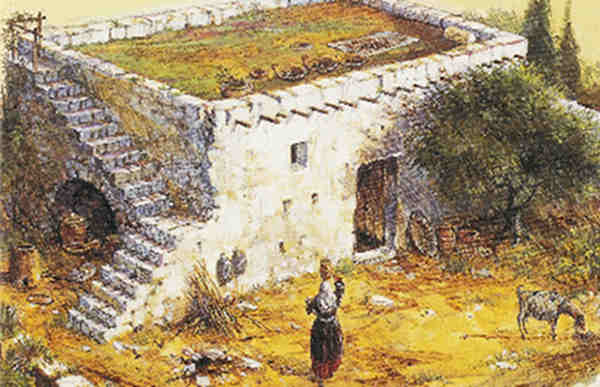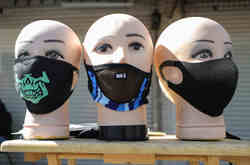
I’ve noticed a curious contradiction lately.
Christian believers are claiming that the Covid-19 guidelines – the quarantines, the masks, the hand washings, the lockdown on gatherings, the business closures – all amount to tyranny, a threat to Constitutional rights, and are based (at best) on mistaken data and (at worst) are part of a deep-state conspiracy to turn us all into fearful sheep.
What’s the contradiction? It all has to do with a “parapet.”
——————–
In ancient Israel, the flat roofs of homes were often places where a family could be cooler, relax, catch more breeze, even sleep. Early in Israel’s history, God made a provision to prevent accidents there:
Deuteronomy 22:8 – “When you build a new house, you shall make a parapet for your roof, so that you will not bring bloodguilt on your house if anyone falls from it.”
Consider this commentary from the 19th century Biblical Illustrator:
“A selfish man might say, ‘I shall always remember that there is no battlement, and keep well away from the sides. It is very unlikely that any will fall over if I leave the sides unprotected. If any accident should occur it can only be through gross carelessness. When my friends and neighbors come to see me, let them take care of themselves. I see no reason why I should be put to this expense.’ The superior person might say, ‘I will have no battlement on this roof. I have nothing but contempt for fashion. Why should I do a thing because other people do it? I will leave my roof unprotected, if only to show my superiority to the caprice and tyranny of custom.’ Now, the spirit of this law is recognized in all civilized communities.”
In fact, this commentator likens the parapet to the fear of God: “Now unto him that is able to keep you from falling, and to present you faultless before the presence of his glory with exceeding joy” (Jude 24-25).
The Talmud (Bava Kamma 15b) extends the requirement for a parapet to all other hazards.
The Hassidic commentator Dov Baer Friedman took it a step further and applied a psychological aspect to the parapet, as restraining one’s “swelling pride” that occurs in the “upper story” of one’s mind.
That’s not too far off, either.
 Our Bible study group is traversing the Torah over a three-and-a-half-year period, and we covered this verse on March 1, just before the Coronavirus hit.
Our Bible study group is traversing the Torah over a three-and-a-half-year period, and we covered this verse on March 1, just before the Coronavirus hit.
I ran into it again while researching “public health” to try to sort out what’s been going on in the public psyche about this.
I found it as a chapter heading in the textbook “Social Epidemiology: Strategies for Public Health Activism.”
A biblical quotation in an epidemiology text?
Like many of our rights and laws, the Bible heavily influenced the early advocates of public health – not to mention social reform in general, anti-slavery causes and even our Constitution itself. Judaism, and then Christianity, carried forward this unique idea about the sanctity of human life, made in the image of God.
To build the parapet in ancient Israel did not mean you were “living in fear,” but rather that you were living in obedience to God.
This verse in Deuteronomy is the little kernel that grew into public sanitation, clean water measures, public hospitals, OSHA, the FDA, etc.
When complaining about “government” or “politicians” imposing requirements or restrictions for the public good, we need to remember that they are us – we elected them. And most of the laws they carry out originated from biblical principles. We the people implemented all the coronavirus restrictions, because we don’t want the people (us) to die.
The importance of this should be especially apparent to those of us who have immune-compromised family members, or who are old, like me, and therefore more vulnerable.
But the mask I wear is not to prevent me from getting Covid-19. It’s to provide a small measure of protection for you and others – from my breath or any droplets that I might release into the air, which could be possibly contaminated (I could be asymptomatic, who knows?)
It’s a parapet, folks.
We don’t know everything about this virus. More information comes to light every day. We may find out none of this was necessary. I might have built my parapet on the roof for nothing – nobody ever came to visit, and I never went up there anyway.
But God said to build it, so I did.



 See all the old archived, classic Rick Perry Devotionals here!
See all the old archived, classic Rick Perry Devotionals here!
I’ve never thought of wearing the mask like this. I try to observe Torah as a lifestyle because I believe in Yeshua HaMashiac, and I believe that obedience is the result of saving faith. Looking at it in this light, I am very humbled. I’ve tried to find the Torah based reasons behind some of the things being implemented, and this is a great example. I actually came upon this verse while researching ancient Hebrew houses. Thank you so much for sharing this! Shalom!